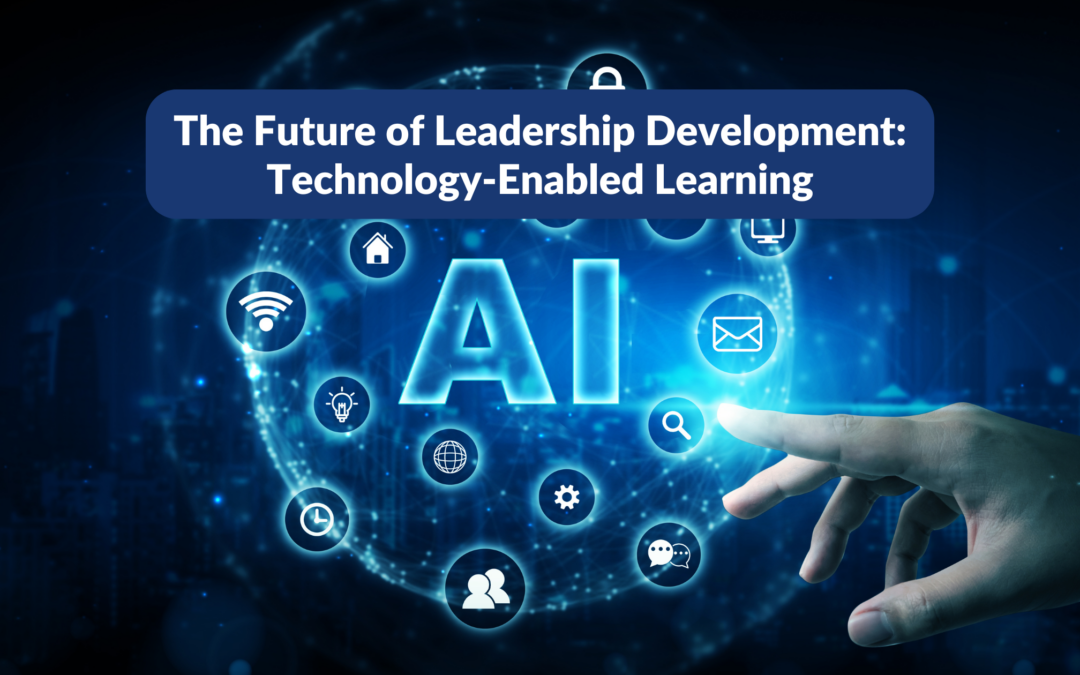The landscape of leadership development is undergoing a dramatic transformation, propelled by rapid technological advancements and the evolving demands of the modern workplace. We’ve moved beyond the era of static, one-size-fits-all training programs and infrequent workshops. Today, leaders require continuous learning opportunities that are personalized, engaging, and adaptable to the ever-changing business environment. This shift is being driven by several key trends, all converging to reshape how we cultivate effective leaders.
At the forefront of this evolution is AI-powered learning. Artificial intelligence is poised to revolutionize leadership development by personalizing learning experiences. AI algorithms can analyze individual learning styles, identify knowledge gaps, and recommend tailored learning paths. This personalized approach ensures that leaders focus on developing the specific skills they need to succeed, maximizing their time and impact.
Complementing AI are immersive technologies like Virtual Reality (VR) and Augmented Reality (AR). These technologies create realistic simulations, allowing leaders to practice critical skills such as decision-making, conflict resolution, and communication in a safe and controlled environment. VR/AR can also be used to develop empathy and enhance emotional intelligence by allowing leaders to experience situations from different perspectives, fostering a deeper understanding of diverse viewpoints.
Recognizing the time constraints of modern leaders, microlearning has emerged as a crucial component. This approach delivers bite-sized learning modules – short videos, interactive quizzes, and articles – that can be accessed anytime, anywhere. This allows leaders to learn at their own pace and integrate learning seamlessly into their busy schedules, promoting continuous development without overwhelming their schedules.
Furthermore, data-driven insights are transforming how organizations evaluate and optimize their leadership development programs. Technology enables organizations to track and analyze learning progress, identify areas for improvement, and demonstrate the return on investment (ROI) of their training programs. This data-driven approach allows organizations to refine their programs, ensuring they are meeting the needs of their leaders and continuously improving their effectiveness.
While technology plays a crucial role, it’s essential to remember that experiential learning remains a cornerstone of effective leadership development. Real-world projects, simulations, mentorship programs, and coaching provide invaluable opportunities for leaders to apply their knowledge, develop critical thinking skills, and build confidence. These experiences bridge the gap between theory and practice, solidifying learning and fostering practical leadership abilities.
The impact of these technological advancements is profound, leading to:
- Personalized Learning Paths: AI algorithms analyze learning styles and recommend tailored training.
- Enhanced Engagement: Gamification and interactive simulations increase learner motivation.
- Improved Skill Development: Technology provides efficient skill development in areas like communication and strategic thinking.
- Data-Driven Decision-Making: Organizations optimize programs based on learning progress analysis.
Looking ahead, the future of leadership development will be characterized by:
- Continuous Learning: Leaders must adapt to rapid changes through lifelong learning.
- Technology Integration: Technology will be essential for skill development.
- Focus on Human-Centered Leadership: Empathy and ethical decision-making remain paramount.
In conclusion, by embracing these trends and leveraging the power of technology, organizations can equip their leaders with the skills and knowledge they need to thrive in the 21st century. Technology-enabled learning will play a pivotal role in developing a new generation of agile, adaptable, and effective leaders who can navigate the complexities of the modern business world and drive organizational success.

